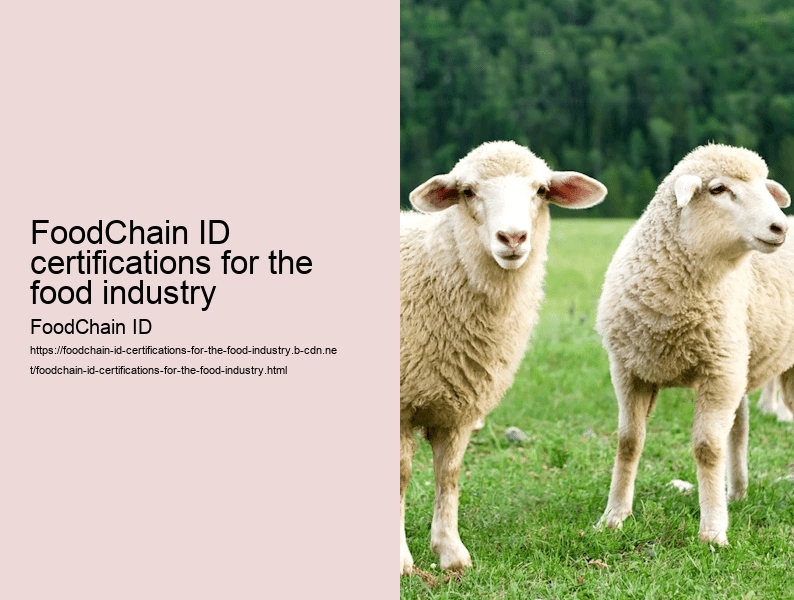FoodChain ID, a global leader in food safety and integrity, offers certifications that are crucial for ensuring the transparency and reliability of food products from farm to fork. These certifications help businesses comply with regulatory standards and meet consumer demand for high-quality, safe, and ethically-produced foods.
One of the primary FoodChain ID certifications is the Non-GMO Project Verified seal. This certification ensures that a product has been produced according to rigorous best practices for GMO avoidance, including testing of risk ingredients. The Non-GMO Project is North America's only independent verification for products made according to best practices for genetically modified organism (GMO) avoidance.
Another significant certification provided by FoodChain ID is USDA Organic. Certified organic foods must be grown and processed according to federal guidelines addressing soil quality, animal raising practices, pest and weed control, and use of additives. Organic producers rely on natural substances and physical, mechanical, or biologically based farming methods to the fullest extent possible.
FoodChain ID also offers Gluten-Free certification which guarantees that food products meet strict gluten-free standards. This certification is vital for individuals with celiac disease or gluten sensitivity who need assurance that their food choices are safe from cross-contamination with gluten-containing grains.
Moreover, FoodChain ID provides certifications pertaining to food safety management systems such as HACCP (Hazard Analysis Critical Control Point) and GFSI-recognized (Global Food Safety Initiative) schemes like SQF (Safe Quality Food), BRCGS (Brand Reputation through Compliance Global Standards), FSSC 22000 (Food Safety System Certification 22000), among others. These certifications affirm a company’s commitment to producing safe food products consistently.
In addition to these standards-based certifications, FoodChain ID offers proprietary verification services like its non-GMO verification program which includes product evaluations against the Standard for Risk-Based Non-GMO Verification—a comprehensive standard developed by FoodChain ID technical experts.
The ProTerra Standard is yet another valuable certification offered by FoodChain ID. It focuses on social responsibility and environmental sustainability in the agriculture sector. Through this certification, companies can demonstrate their dedication towards more sustainable agricultural practices.
To maintain these various certifications' integrity, regular audits are conducted by qualified third-party auditors who ensure compliance with each standard's criteria. This external validation helps build trust between consumers and brands because it signifies an impartial endorsement of a product's quality claims.
Overall, securing one or more FoodChain ID certifications can benefit companies in several ways: accessing new markets where certain labels are required or preferred; differentiating products in a crowded market; improving supply chain oversight; reducing risk associated with recalls; enhancing brand reputation; fostering consumer trust; promoting better health outcomes through safer food options; contributing toward environmental sustainability efforts; supporting ethical labor practices within agriculture industries globally.
As consumers become increasingly conscious about what they eat—and as regulations around food production continue tightening—certifications like those offered by FoodChain ID will likely grow even more essential within the ever-evolving landscape of global food industry standards.
